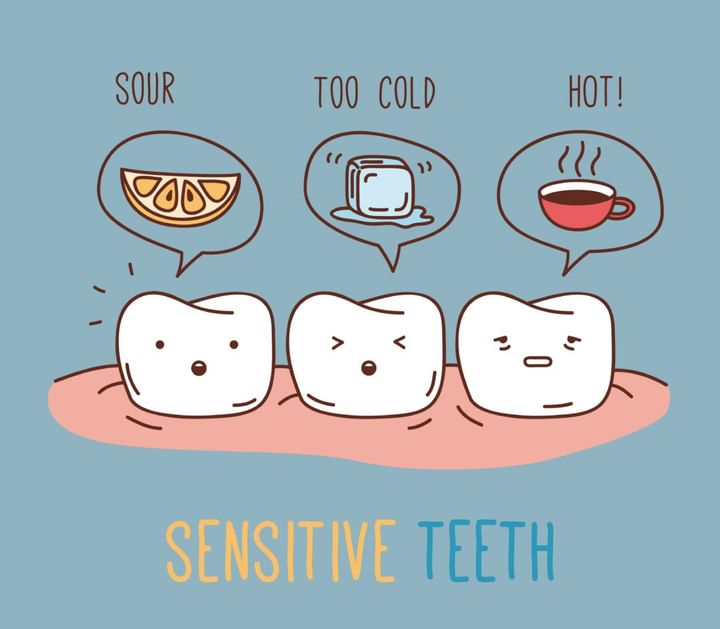Tooth Sensitivity: What Is It?
If you have experienced sharp pain when you eat/drink hot, cold, sweet and sour food/drinks, or when you brush/floss your teeth, you may be suffering from tooth sensitivity provided that you do not have oral problems such as tooth decay. Even if you do not have any sensitive teeth, you are encouraged to read this article to prevent it.
What is Tooth Sensitivity? Tooth sensitivity is mainly caused by exposure of dentine (innermost layer) of the tooth to the oral environment. The dentine has numerous fine tubules which connect to the pulp. When the nerve endings in the pulp are irritated by external stimulus, sharp pain is felt.
The outermost layer of the crown is enamel. If the enamel has been damaged, the dentine will not be protected. The dentine of the root of a tooth is covered by the gum. If there is gum recession, the dentine of the root will be exposed.
Dentine Exposure is caused by:
1. Using a toothbrush with hard bristles
2. Brushing the teeth with excessive force or incorrect brushing technique, leading to gum recession and abrasion of the root surface
3. Periodontal disease, resulting from gum recession and exposure of root surfaces
4. Acid erosion of enamel due to frequent intake of highly acidic food or drinks.
5. Habitual teeth grinding which wears off the enamel
Management of tooth sensitivity
1. Consult the dentist and learn the correct tooth brushing technique to prevent further abrasion of root surfaces.
2. Use desensitizing toothpaste to relieve tooth sensitivity. Please consult your dentist before purchasing or using desensitizing toothpaste.
3. If dentine has been exposed, the dentist can apply topical fluoride or put a filling over the exposed surface to reduce the sensitivity.
4. If you habitually grind your teeth, the dentist may fabricate a “night guard” for you to wear over the teeth to prevent continual attrition of teeth.
5. Other than tooth sensitivity, dental problems such as tooth decay, gum disease and cracked tooth may also lead to toothache. Therefore, if you have a toothache, please consult your dentist to find out the reasons behind it.



+1.svg)
